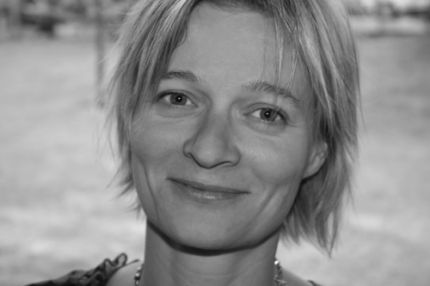Høringssvar af Julie Koch (Red Barnet)
Red Barnet har indarbejdet svar fra sine partnere i tre u-lande i svaret til Danida; et af dem er fra Uganda, og det konkluderer, at hvis dansk bistand trækkes ud “vil det undergrave de milepæle, der er nået for menneskerettighederne”.
Danmark har allerede omlagt dele af sin udviklingsbistand til Uganda efter at parlamentet i Kampala har vedtaget en draktonisk lov vendt mod homoseksuelle og andre seksuelle mindretal, som præsidenten senere har stadfæstet.
“Det er vigtigt, at den samlede politik (fra dansk side) går ind i, hvordan vi håndterer kontroversielle emner uden at skade menigmand og samtidig beskytte rettighederne for de mennesker, der rammes”, hedder det fra sektionslederen i Red Barnets danske afdeling i høringssvaret om den fremtidige politik overfor NGOerne (civilsamfundspolitikken).
Det hedder herom i det engelsk-sprogede høringssvar:
In view of Uganda where recently an anti gay law was passed, it will be important that Danida understands that this law does not speak for all Ugandan’s and withdrawing support from Uganda would undermine the milestones achieved in the area of human rights.
It will be important that the policy looks at how controversial issues can be handled without hurting the common person who feels the pain most but in the same protecting the rights of the people affected by such policies.
Høringssvaret i øvrigt:
From our internal hearing with our partners Save the Children Denmark would like to share the statements below that summarize partner inputs from Sri Lanka, Bangladesh and Uganda. Many of the views have been integrated into our own input, but we would also like our partners’ own voice to be heard.
* There is a need to introduce a chapter on: Background and rationale where you can mention Emerging trends in the development and political environments A. Development context. B. Social and political context. Danida’s experience with civil society A. Achievements B. Lesson learnt
* We suggest to expand the role of civil society (which the policy is aiming to support) to also include rights based service.
Advocacy (fortalervirksomhed) alone cannot contribute in meeting the challenges of human rights. Services such as – education for the marginalized children, health care, legal services, shelter facilities and referral etc. does not only meet much needed urgent services.
These are also part of constituency building and model building which contribute in advocacy
* Service delivery in a fragile context can be a dire need. But in other contexts service delivery will jeopardize the civil society empowerment process by creating dependency.
* The five capacity Principles are important. Right weight has been placed upon the ownership of the change processes on those whose capacity is being developed. We have observed Development Partner agenda’s paralyzing the civil society activism.
* The flexibility given to build own networking mechanisms allow the civil society to liaise with the likeminded organizations in a manner comfortable to the specific civil society organization. This enhances the growth of the organization.
* Need assessment and analysis of civil society roles:
Internal governance is a big issue for a civil society organization which impacts on organizational growth and sustainability. How this policy will deal with this issue?
* Space for civil society is also shrinking at the face of emergence of religious fundamentalism. Often this reduces discursive (omstridte) space of CSOs on issues concerning gender equity (køns-lighed), sexuality and ownership etc. – democracy in general.
* In the section of ‘Engaging the Private Sector’:
In case of export sectors (e.g. ready-made garments) there is a need to have “corporate global social responsibility” as the value change includes business actors and consumers across global north and south.
* On national and international level debate and policy changes:
Southern CSOs need representation in global dialogues, campaigns and protests on trade and development – such as events centering and /or within WTO and UNFCCC (FNs klimapanel) , COP etc.
* We appreciate the draft policy as it focused ‘The Right to a Better Life’ based on HRBA (menneskeretsbaseret tilgang) principles; Secondly, in the target groups it included people with special rights – people with disabilities.
* We expect the principles of HRBA will be included in all stages of cooperation-from designing stage to evaluation stage.
* In view of Uganda where recently an anti gay law was passed, it will be important that Danida understands that this law does not speak for all Ugandan’s and withdrawing support from Uganda would undermine the milestones achieved in the area of human rights.
Bilateral and multilateral relations have got a strong interplay and in some situations they complement each other.
It will be important that the policy looks at how controversial issues can be handled without hurting the common person who feels the pain most but in the same protecting the rights of the people affected by such policies
* I thank Danida for standing with the global south in as far as development is concerned. Uganda in particular would have not gotten where it is today without support from Danida.
* We have read and revised the policy very well and we are fully supporting it ?
Julie Koch (42) er sektionsleder for Program Development i Red Barnet Danmark. Hun har tidl. været internationale chef i Dansk Ungdoms Fællesråd (DUF) og i Mellemfolkeligt Samvirke. Hun er medlem af Udviklingspolitisk Råd som et af fem NGO-medlemmer. Rådet tæller 15 personer og trådte i kraft pr. 1. januar 2013.
Mere om Red Barnet på http://www.redbarnet.dk
Mere om Julie Koch – omtale af ældre dato – på
http://www.u-landsnyt.dk/navnenyt/nyt-job/nyansaettelser-til-dufs-internationale-arbejde
Se også telegrammet
http://www.u-landsnyt.dk/nyhed/26-09-13/dagsorden-2030-22-red-barnet-muligt-udrydde-verden














